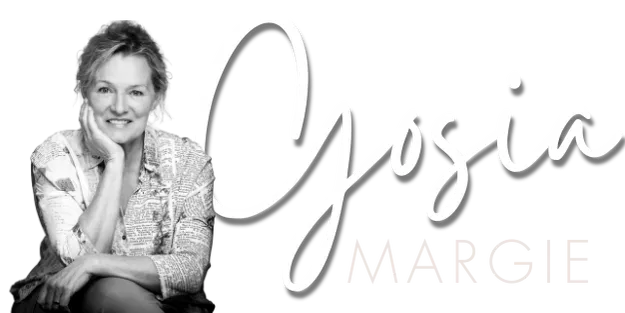
Avoid information overload with an info-filtering game plan
In the contemporary world, where data is at our fingertips, the sheer volume of information can be overwhelming and even paralyzing. The paradox of information overload can stall progress, leading to indecisiveness. Even with tools like Chat-GPT, the ‘information’ rabbit hole can deepen unless we exercise discipline in our search. The key lies in filtering information effectively. Are you ready to explore this mastery? Let’s get started!
Your Ultimate ‘Info-Filtering Game Plan’: Avoid Overwhelm and Find What You Need 📚
Wading through an avalanche of articles and still not finding what you need can be frustrating. Here’s how you can refine your search and find exactly what you’re looking for, without the stress.
Step 1: Define Your Goals 🎯
Before you plunge into the sea of information, it’s crucial to know precisely what you’re looking for. Establish clear objectives and specific criteria to steer your search, ensuring you can recognize valuable insights when you see them.
Practical Tips for Defining Goals:
Specific Questions: Frame your research around specific questions or problems you need answers to.
Purpose Clarity: Understand why you need the information and how you plan to use it.
Priority Setting: Identify which aspects are most critical and focus on those first.
Step 2: Trustworthy Sources: The Anchor of Your Search ⚓
All sources are not made equal. Invest your time wisely by initiating your search from reliable websites, publications, or field experts. Even tools like Chat-GPT can sometimes produce misleading results, so doing your research pays off. By doing so, you’re more likely to find precise, trustworthy, and high-quality information.
How to Identify Trustworthy Sources:
Credible Authors: Check the credentials and background of the authors.
Reputable Websites: Use sources from recognized institutions or well-known publications.
Cross-Verification: Compare information across multiple sources to ensure accuracy.
Step 3: Mastering Advanced Search Techniques 🔍
Harness the power of search engines by becoming proficient in advanced search techniques. Use quotation marks for exact phrases, a minus sign to exclude terms, and conduct site-specific searches. Mastering Boolean search can be a game-changer. These tricks can help you streamline your search, saving you time and effort.
Key Search Techniques:
Exact Phrases: Use quotation marks to find exact matches (e.g., "information overload").
Exclusion: Use a minus sign to exclude unwanted terms (e.g., "information overload -technology").
Site-Specific Search: Use "site:" to search within a specific website (e.g., "site
.com information overload").
Boolean Operators: Use AND, OR, and NOT to refine your searches (e.g., "information AND overload OR excess NOT technology").
Step 4: Skim Your Way to Success 🏅
Develop your skimming skills to quickly pinpoint the main ideas and evaluate if a resource is worth a deeper read. Scan headings, bullet points, and bolded phrases to assess the relevance of the content.
Skimming Strategies:
Headings and Subheadings: Focus on these to understand the structure of the document.
Introduction and Conclusion: These sections often summarize the main points.
Visual Cues: Pay attention to charts, graphs, and bullet points that highlight key information.
Step 5: Effective Note-taking: The Key to Retention 📝
As you uncover valuable insights, jot down the key points and arrange them in a manner that’s easy to comprehend and reference later. You can leverage digital tools like Evernote, Google Keep, or stick with the traditional pen and paper – choose what suits you best!
Note-taking Techniques:
Outline Method: Organize notes hierarchically using headings and subheadings.
Mind Mapping: Use visual diagrams to connect ideas and concepts.
Digital Tools: Use apps like Evernote or OneNote to keep notes organized and easily accessible.
Step 6: Curate Your Knowledge Library 📖
Compile your research into a well-structured, readily accessible knowledge library. This effort will save you time in the future, making it seamless to locate the information you need when you need it.
Building Your Knowledge Library:
Organize by Topic: Categorize information into specific topics or themes.
Use Tags and Labels: Implement a tagging system to quickly find relevant content.
Regular Updates: Periodically review and update your library to keep it current and relevant.
Step 7: Implement a Review and Reflection Process 🔄
Regularly review and reflect on the information you have gathered. This step ensures that the knowledge you acquire remains fresh and relevant, helping you apply it effectively when needed.
Review Strategies:
Weekly Reviews: Set aside time each week to go through your notes and update your knowledge.
Reflection Sessions: Reflect on how the information aligns with your goals and how it can be applied.
Feedback Loop: Seek feedback from peers or mentors on your information-gathering process and make necessary adjustments.
Step 8: Stay Disciplined and Focused 🧘♂️
Discipline is crucial in avoiding the information rabbit hole. Stick to your goals, rely on trusted sources, and use your note-taking and knowledge curation systems to stay organized and focused.
Staying Focused:
Time Management: Allocate specific time blocks for research to avoid burnout.
Breaks and Pauses: Take regular breaks to refresh your mind and avoid information fatigue.
Mindfulness Practices: Incorporate mindfulness practices to stay present and focused during your research.
Mastering the Art of Info-Filtering
By adhering to this plan, you’ll transform into an info-filtering champion, capable of finding exactly what you need in no time. Bid farewell to endless scrolling and fruitless searches – you’ve successfully overcome information overload! 🎉
At Experts Growth Hub, we’re here to support you in mastering the art of info-filtering, ensuring you stay focused, informed, and empowered. Together, we can navigate the sea of information and reach your goals with clarity and confidence.



